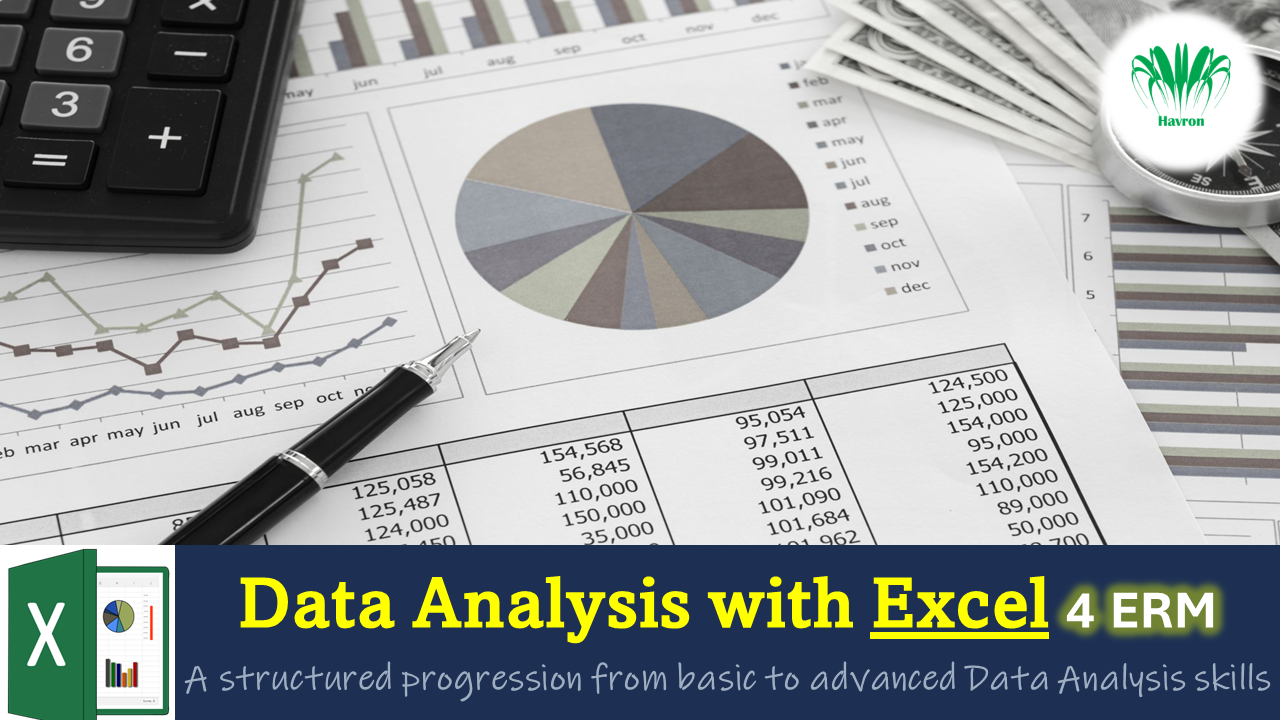Unlock the Power of Microsoft Excel for Enterprise Resource Management (ERM) with our specialized training program – " Excel for Enterprise Resource Management." Move beyond traditional formulaic learning and immerse yourself in a role-based approach tailored for Project Managers, Supply Chain Experts, Human Resources Managers, Sales Executives, Accountants, Data Analysts, and other ERM professionals.
Why Choose Excel for Enterprise Resource Management?
In adopting a role-based training curriculum for Excel, our primary goal is to ensure immediate and practical application of skills in the participants' specific roles within the workplace. Unlike the traditional approach, which tends to teach a broad array of skills independently, our role-based approach tailors the learning journey to align precisely with the functions, formulas, and features relevant to each participant's role.
One key advantage of this approach is the efficiency it brings. By focusing on the skills that are immediately applicable, participants avoid the potential cognitive overload associated with learning unrelated or less relevant features. Traditional methods might inadvertently lead participants to acquire skills that, in the context of their roles, are not readily useful. This lack of immediate application can result in participants unintentionally forgetting these skills over time due to non-use.
Moreover, the role-based approach emphasizes continuous practice and application. Participants not only learn the necessary skills but also integrate them into their daily tasks, reinforcing their understanding through practical, real-world scenarios. This continuous application ensures a higher retention rate as participants master skills through consistent use rather than memorization.
Furthermore, while the role-based approach introduces all features corresponding to each skill level, it does so in a streamlined manner, providing essential tips for efficient utilization. This approach optimizes the learning process by avoiding unnecessary complexities and allowing participants to grasp the functionalities relevant to their roles without getting bogged down by extraneous details.
In conclusion, our role-based training curriculum offers a targeted, efficient, and practical learning experience. By aligning Excel skills with the immediate needs of participants' roles, we empower them to apply their learning directly, ensuring not only skill acquisition but also mastery through ongoing, purposeful use in their professional settings.
Role-Centric Learning: Our training shifts focus from
generic functions to role-specific applications. Dive deep into Excel
functionalities that directly impact your responsibilities in project
management, supply chain optimization, HR analytics, sales forecasting,
accounting, and data analysis.
Practical Application: We believe in learning by
doing. Throughout the program, participants apply concepts directly to their
roles, ensuring immediate relevance and applicability in real-world scenarios.
Witness instant improvements in your day-to-day tasks as you grasp the nuances
of Excel for ERM.
Efficiency Enhancement: Tailored training means
increased efficiency. Project Managers will master project tracking, HR
Managers will streamline workforce analytics, Sales Executives will refine
forecasting models, and Data Analysts will uncover actionable insights – all
through the lens of Microsoft Excel.
Comprehensive Curriculum: Our curriculum covers
advanced Excel features, scenario-based modelling, data visualization, and
collaborative tools. Acquire the skills necessary to excel in your specific ERM
role and become a proficient user of Excel for strategic decision-making.
Peer Interaction: Connect with professionals from
diverse ERM backgrounds. Exchange insights, best practices, and collaborate on
solving real-world challenges. The training fosters a community of Excel-savvy
ERM experts, enriching your learning experience.
Who Should Enroll:
- Project Managers
- Supply Chain Experts
- Human Resources Managers
- Sales Executives
- Accountants
- Data Analysts
- ERM Professionals
Don't miss the chance to elevate your Excel skills and
revolutionize your approach to Enterprise Resource Management. Enroll in "Excel
for Enterprise Resource Management " today and embark on a transformative
journey towards becoming an Excel-savvy ERM professional.
Unlock the potential of Excel. Empower your role in ERM.






